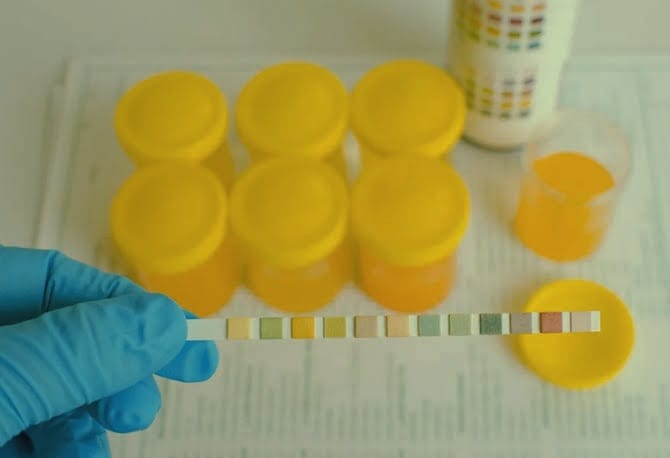Normal Blood Pressure during Pregnancy
Introduction
Blood pressure is an important health indicator. It reveals how much stress the blood is exerting on blood vessel walls in the body. During pregnancy, keeping blood pressure normal is crucial as it ensures that the placenta (through which a baby gets nourishment) is receiving enough blood flow. If a mother’s blood pressure gets too high or goes too low, then problems can start for both mother and child. It is particularly important to watch forward high blood pressure, which can lead to grave issues such as preeclampsia, damaging the health of mother and baby alike. Though it occurs less frequently, low blood pressure can also cause trouble. This may mean that the baby does not receive enough nutrition to grow properly. When a doctor or nurse measuring your blood pressure it work with this special cuff simply wraps it around your arm while using a device to take readings from that. Each blood pressure reading consists of two numbers. The first number is the systolic blood pressure. This pressure corresponds to the force of your blood when your heart beats. The second number is the diastolic blood pressure. This pressure is that which exists in your arteries while your heart rests between beats. For example, if you have a reading of 120/80 mmHg, then ‘120’ is your systolic pressure and `80′ is your diastolic pressure.
Blood pressure is different for everyone. It can depend on many things, like your age, how physically active you are and how much stress is in your life. Even the time of day might make for a difference in the pressure. It is not as high in early morning or nighttime as it tends to be in midday, which probably feels like perfect. For pregnant women, blood pressure is especially important to watch. During pregnancy it can change greatly, so regular checks are important for both mother and child.
Normal Blood Pressure Range in Pregnancy
Normal blood pressure for pregnant women is often one of these figures; high and low limits. What is normal may be frequently asked question for women who are expecting. However, all of those numbers probably change somewhat during pregnancy. In the first half of pregnancy, blood pressure might actually go down a little. This is because female pregnancy hormones can relax the walls of your blood vessels. However, in the second half it usually returns to your pre-pregnancy level or a little more.
It is important to know that blood pressure may be different for each women. Some have naturally lower or higher readings and are still healthy. Doctors pay very close attention to how much your blood pressure changes from its usual level. Big changes, not just the numbers themselves, might mean more monitoring.
There are some wrong ideas about blood pressure in pregnancy. One such misconception is that high readings always equal danger. Nevertheless, while extremely high figures warrant immediate attention, lower increases are often an ordinary part of normal pregnancy. Another misunderstanding holds that high blood pressure symptoms are always manifest. In fact, a number of women with slightly high blood pressure feel just fine. This is why antenatal checks are so important. They help maintain the health and well-being of both mother and child
Causes of High Blood Pressure in Pregnancy
Several factors can affect blood pressure in pregnancy, including a woman’s body weight, lifestyle choices, age and her levels of stress. Each one of these can make pregnancy significantly different for every woman.
Obesity: Weight plays a significant role in blood pressure levels. Being overweight or underweight can lead to higher or lower blood pressure, respectively. Pregnant women should eat a balanced diet, avoid overeating and exercise prudently in order to maintain good health during this period.
Lifestyle: Smoking, alcohol abuse and lack of physical activity can be a negative influence on blood pressure. Moderate regular exercise such as walking or prenatal yoga is beneficial for maintaining the healthy blood pressure levels in pregnant women.
Age: Age is another factor. Younger mothers may experience different fluctuations in blood pressure from older ones. Risk of high blood pressure also increases with age.
Stress: When expectant mothers are under a lot of tension, their blood pressure can temporarily rise. Expectant mothers to help reduce stress should adopt effective relaxation exercises and mindfulness.
Monitoring Blood Pressure during Pregnancy
It is crucial that one’s blood pressure be checked regularly during pregnancy. This is a key component of these prenatal visits; finding changes early means better outcomes for your health and that of the baby. When blood pressure rises too high or falls too low, it often indicates other health concerns, which require immediate attention.
Healthcare providers typically need to take readings with a sphygmomanometer, a blood pressure cuff, during prenatal visits. Ambulatory blood pressure monitoring devices are two types. The one is manual which involves a cuff that you pump up around your arm and listen to the sounds of blood flowing with a stethoscope. The Other one is digital sphygmomanometers, which is easier to operate.
With digital blood pressure monitors, expectant mothers who want to monitor their own blood pressure at home have a practical tool. These blood pressure monitors are easy to use and give quick readings. However, it is important to calibrate the device properly and to follow instructions in order to get accurate readings.
When blood pressure is measured at home, it is best to do so at the same time each day. Sitting Calmly in your seat will help avert some of the anxiety that may occur during this process. Keeping regular records of these readings can be a good idea. Now that prenatal visits are more frequent, ongoing blood pressure monitoring can show the trend lines.
A regular check of blood pressure both at home and during prenatal visits is one of the several steps to ensure that a pregnancy is healthy. It provides early detection and management for potential issues, benefiting both mother and child.
Potential Problems and When You Should Get Help
Knowing the signs of abnormal blood pressure is important during pregnancy. High blood pressure may not have any symptoms, but these are a few things to watch out for severe headaches, blurred vision or very tiredness. Low blood pressure could make a woman feel dizzy or even faint. All of these signs should be reported immediately to doctor.
If blood pressure is not normal, then expectant mother should must get professional treatment. Blood pressure changes can indicate urgent problems. High blood pressure could lead to preeclampsia, which is dangerous for both the mother and her baby. Low blood pressure might mean the baby is not getting enough nutrition.
Conclusion
Normal blood pressure is essential for a healthy pregnancy. Both at home and during doctor visits, it is important to keep checking this parameter regularly. Do not forget, things such as weight, the way you live, and how much tension there is in your life can affect blood pressure. It follows that making good choices is key.
Regular checks allow a quick response to any changes early on. That way any problems can be promptly dealt with, keeping the mother and baby safe.







